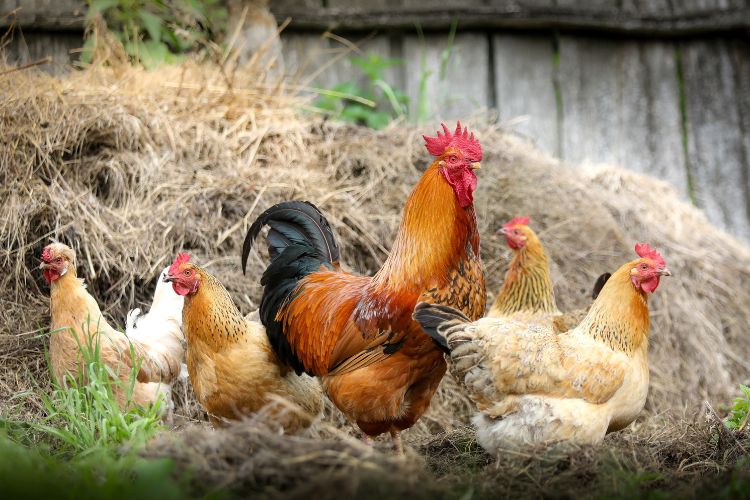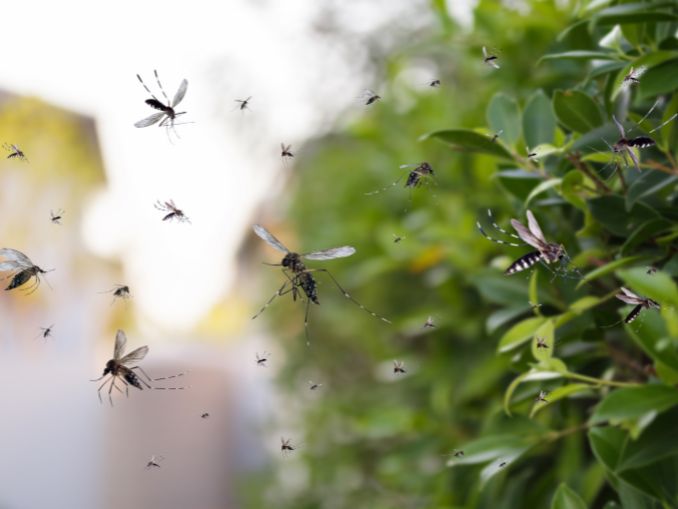Can Chickens Help in the Fight Against Mosquitoes? What You Need to Know
Chickens might seem unusual, but they could help fight mosquitoes, which are annoying and spread dangerous diseases like malaria and Zika. While we usually try to keep mosquitoes away with sprays and nets, chickens offer a more natural option. But, how well do they work? Can chickens help in reducing the number of mosquitoes?
This simple guide will give you the essentials on whether chickens can be a part of battling these pests.
Overview of What Chickens Typically Eat
- Grains and seeds
- Insects (such as beetles, termites, and mosquitoes)
- Worms and larvae
- Green vegetables and weeds
- Fruits and berries
- Kitchen scraps (excluding meat, raw potato skins, and avocado)
- Commercial poultry feed
So, Can Chickens Help Reduce Mosquitoes?
Observing my backyard chickens led me to an interesting discovery: they help reduce the mosquito population around my home. Chickens are omnivores that naturally consume insects, including mosquitoes and their larvae, during their daily foraging activities.
While I noticed fewer mosquitoes in my backyard during the months when my chickens were most active, it’s important to understand that chickens alone cannot eliminate mosquito populations.
Incorporating chickens into an integrated pest management strategy could offer a more sustainable and eco-friendly approach to mosquito control. This combines biological control methods, like using chickens, with other pest management techniques.
Although chickens aren’t a silver bullet solution for mosquito control, my experience suggests they can play a supportive role in reducing mosquito numbers alongside other methods.

Considerations and Limitations
While using chickens for mosquito control offers several benefits, there are important considerations and limitations to keep in mind:
- Localized Impact: Chickens can effectively reduce mosquito populations in their immediate foraging area, but their reach is limited. Larger areas may require additional methods for comprehensive mosquito control.
- Predator Risk: Chickens can attract predators like foxes, hawks, and raccoons. Adequate protection and secure housing are necessary to keep them safe.
- Disease Concerns: Chickens can carry and spread diseases like salmonella. Proper hygiene practices and coop maintenance are essential to minimize human health risks.
- Mosquito Lifecycle: Chickens primarily consume adult mosquitoes and larvae that are accessible on the ground or in shallow water. However, they cannot eliminate mosquitoes breeding in inaccessible areas or large bodies of water.
- Seasonal Activity: Chickens’ foraging behavior and appetite can vary with the seasons, affecting their effectiveness in controlling mosquitoes year-round.
- Not a Standalone Solution: Relying solely on chickens for mosquito control might not be effective enough, especially in areas with high mosquito populations. Integrated pest management strategies may still be necessary.
- Legal and Residential Constraints: Local regulations or housing association rules may restrict the ability to keep chickens, limiting this method’s applicability to some individuals.
- Maintenance Requirements: Chickens require regular care, including feeding, housing, and healthcare, which can be a significant commitment for potential owners.
Despite these challenges, the benefits chickens can bring to mosquito control are worth noting. After considering the limitations, let’s highlight next the advantages of how chickens can be a valuable part of managing mosquito populations more naturally and sustainably.
Benefits of Using Chickens for Mosquito Control
- Natural Pest Reduction: Chickens consume various insects, including mosquitoes and their larvae, naturally reducing the pest population without chemical repellents.
- Sustainable Approach: Utilizing chickens for mosquito control promotes a more sustainable, eco-friendly method of pest management that aligns with organic farming and gardening practices.
- Reduction in Chemical Use: By relying on chickens to control mosquito populations, there’s less dependency on chemical insecticides, which can harm the environment and non-target species.
- Enhanced Biodiversity: Chickens can contribute to a balanced ecosystem in your backyard, promoting biodiversity by naturally controlling pests.
- Soil Aeration and Fertilization: While foraging mosquitoes and other insects, chickens also aerate the soil with their scratching, and their droppings serve as an excellent fertilizer.
- Dual-Purpose Benefit: Besides pest control, chickens provide additional benefits such as egg production, companionship, and the joy of observing their behaviors.
- Cost-Effective: Using chickens for mosquito control can be cost-effective, especially for those already keeping chickens for eggs or as pets, reducing the need for additional pest control solutions.
In short, using chickens to help fight mosquitoes is a clever and nature-friendly idea. While chickens might not be able to get rid of all mosquitoes, they can certainly help reduce their numbers by eating them. This method offers the extra benefits of providing eggs and meat, making it a useful addition to other mosquito control techniques.
However, more research is needed to fully understand how effective chickens can be against mosquitoes in different places. Combining chickens with other ways of controlling mosquitoes could be smart in keeping these pests and the diseases they carry at bay.




